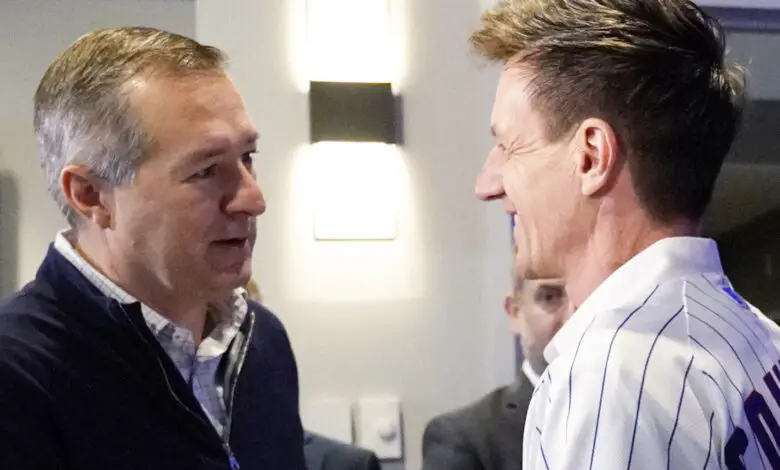
Where Do You Believe Cubs Payroll Will Fall in 2024?
Every discussion about the Cubs’ potential pursuit of this free agent or that trade target inevitably comes back to how much you think they’re going to spend. Many remain convinced they’ll take the cheap route and force Craig Counsell to manage the same sort of roster he had all those years in Milwaukee. Others believe the manager wouldn’t have taken the job without some assurance that ownership would flex a little more financial muscle.
Team leadership has expressed a willingness to spend on more than one occasion already this offseason, painting the organization further into a corner when it comes to building a winner. The strain of mediocrity has shown up at the box office for a while now, to the extent that the Cubs have done away with their vaunted season ticket waiting list in order to generate more buzz following a significant erosion of ticket holders.
Full-season attendance of 2,616,780 in 2022 was down to its lowest level since only 2,190,308 people passed through the gates in 1997. And even that is an inflated figure, as anyone who watched gulls outnumbering fans in the bleachers many afternoons in that moribund season can attest. A more competitive team in ’23 bumped paid attendance to a little under 2.8 million, though that’s still well shy of the nearly 3.2 million Wrigley averaged from 2016-18.
At an average ticket price of around $55, that’s a loss of $22 million in gate alone before factoring in concessions, merchandise, hotel costs, etc. Given how much the Ricketts family owns in Wrigleyville now, it stands to reason that they will make a lot more money with a more competitive team. That ownership extends to Marquee Sports Network, which has had carriage struggles and is now pushing a $20-per-month standalone streaming service that stands to produce a windfall under the right circumstances.
How much the owners are willing to spend in an attempt to generate more wins is the big question.
I put up a Twitter poll asking what my followers thought and the early results are overwhelmingly in favor of the Cubs going over the competitive balance tax threshold by at least $5 million. As of publication, going over by $5-10 million was just barely edging out a $20+ million overage. My guess is that running something similar on Facebook would see a stronger trend toward the cheaper side, though not enough to offset the pro-spenders.
Where do you believe Cubs payroll will end up for 2024?
— Evan Altman (@DEvanAltman) November 21, 2023
My vote would be for the $20+ million overage, mainly because the market is such that the Cubs can make some huge moves now and let their farm help to pay them down moving forward. I’m thinking one or two major free agents and a big trade for a short-term contract, then several ancillary moves to fill out the roster. From there, it’s just a matter of curating things so the penalties don’t become prohibitive in future seasons.
Kyle Hendricks, Drew Smyly, and Yan Gomes drop off after next year, freeing up $31.5 million of AAV. The Cubs will also be free from the remaining $10.25 million owed to Trey Mancini and Tucker Barnhart, which isn’t insignificant. And just for shits and giggles, let’s say they trade for Juan Soto and his $30-some million. That would fall off as well. Looking ahead to 2027, the Cubs will get about $76 million from the expiring contracts of Ian Happ, Seiya Suzuki, Jameson Taillon, and Nico Hoerner.
The lowest CBT threshold will be at $244 million by then, a $7 million increase from ’24, but the need for a new collective bargaining agreement for ’27 beyond could bring significant changes. All things considered, they’ve got several release valves available should they choose to get really splashy this winter. The real trick to the whole thing will be continuing to produce talent from the system that can come up and provide an impact in Chicago, something they weren’t able to do well enough after 2015-16.
Please feel free to offer your own choice and a defense of it in the comments below or on whatever social media platform led you here. Just know up front that “Ricketts is too cheap,” “They spent too much on Counsell,” or “Wrigley sells out no matter what” won’t be considered reasonable arguments.
